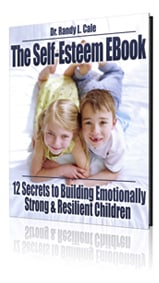Children can suffer when Mom and Dad are at odds in their parenting styles. Often, these differences do not become evident until a few years into parenting. When the ‘parenting playbooks’ have different rules and consequences for the children, parents often argue, and conflict emerges. More obvious over time, however, is that many behavioral problems emerge. Daily habits suffer, and there is conflicted management of daily routines. Children often come to recognize these differences, and that foretells even greater challenges. Here are few specific examples of common parenting differences.
- Dad wants the kids to eat healthily, but mom has her own issues and the pantry is full of chips, cookies, and bagels. When mom and dad talk, it becomes more about the parents than the fact that their child is 30 pounds overweight.
- Mom says the kids must be in bed by 8:00 p.m., but when she works the late shift, Dad lets them stay up till 9:00. He says, “Don’t tell your mother.” Dad says, “You wanted to play the piano, so I bought you a piano.” He insists that the child practice every day. When he’s not home, Mom says it’s okay to skip the piano. Mom says,” You have to do your homework before you can go outside.” Dad says, “You need some fresh air. You can do your homework after dinner.”
- Mom and Dad are divorced. Mom doesn’t want the kids to grow up gaming for hours every night. Dad somewhat agrees but gives in and buys an Xbox. Over time, the boys want to spend more time with dad, mainly because Dad fails to set limits and time expands on Xbox. They love Mom and Dad…but it’s easier to be with Dad.
The Ying vs Yang of Parenting
Parents often disagree about how to raise their children. Many parents talk out these differences and reach a common ground. Yet, over time, these discussions often do not bring unity in parenting.
When they do not find common ground, the differences cause problems almost immediately. Parents ignore each other’s desires and act as if there were only one set of guidelines, blinding themselves to the utter confusion evolving in their children’s minds.
Minor differences are the point of this discussion. That happens in every home. However, when limits consistently change, and one parent blindly overrides the other’s decisions, the results become toxic and behavior deteriorates rapidly. Children simply will take advantage of this and optimize the confusion to get more of what they want.
And many times, these differences do not cause difficulty until a more challenging child appears. The easy children seem to get along better in these confusing worlds, as they challenge less. But if a more defiant child arrives, the differences in parenting become amplified.
Why Can’t Most Parents Find Their Way Through This?
It often starts small. One parent is at odds with the small decisions of the other and chooses to do things differently. In their mind, it’s not a big deal. The other parent responds by making more independent choices. Over time, each parent incrementally reacts more strongly to the other parent’s decisions.
Unfortunately, it becomes more important to enforce “my values” than to resolve differences. Over time, considerable hostility emerges, as each parent feels their voice is not being honored. At this point, when the differences are discussed, it’s often in angry exchanges that make the parenting gap seem even wider. This family dynamic is unhealthy for kids.
Every parent knows: Children thrive in a world with consistent routines, limits, and exposure to experiences that promote healthy behaviors and healthy choices. For children to learn from their two most important teachers—Mom and Dad—they must see their parents as competent, capable, and reliable. They must know that when you say something, you mean it, and when you set a limit, that’s the limit.
Children learn through consistently bumping into the limits you establish for them. If the limits change from day to day or from parent to parent, it’s very difficult for kids to learn where they really are. In fact, it’s almost impossible for important messages to get through. If one parent says bedtime is 8:00 p.m. and the other says it’s not, the parents’ credibility is undermined in ways that filter into every area of the child’s life. It becomes apparent to the children that Mom and Dad don’t have it together, and it’s easy to leverage one against the other.
Many couples who engage in this behavior wouldn’t dream of saying bluntly, “Oh, you don’t have to listen to your dad (mom).” They would rightly view this as harmful. But the same parents are willing to subtly undermine each other’s credibility by setting different limits. This is damaging to kids and a marriage.
And yet…Mom and Dad are bound to have differences. How do you approach these differences so that there can be an agreement? In next week’s article, we will discuss some specific solutions for this, and moving toward a shared parenting playbook.















